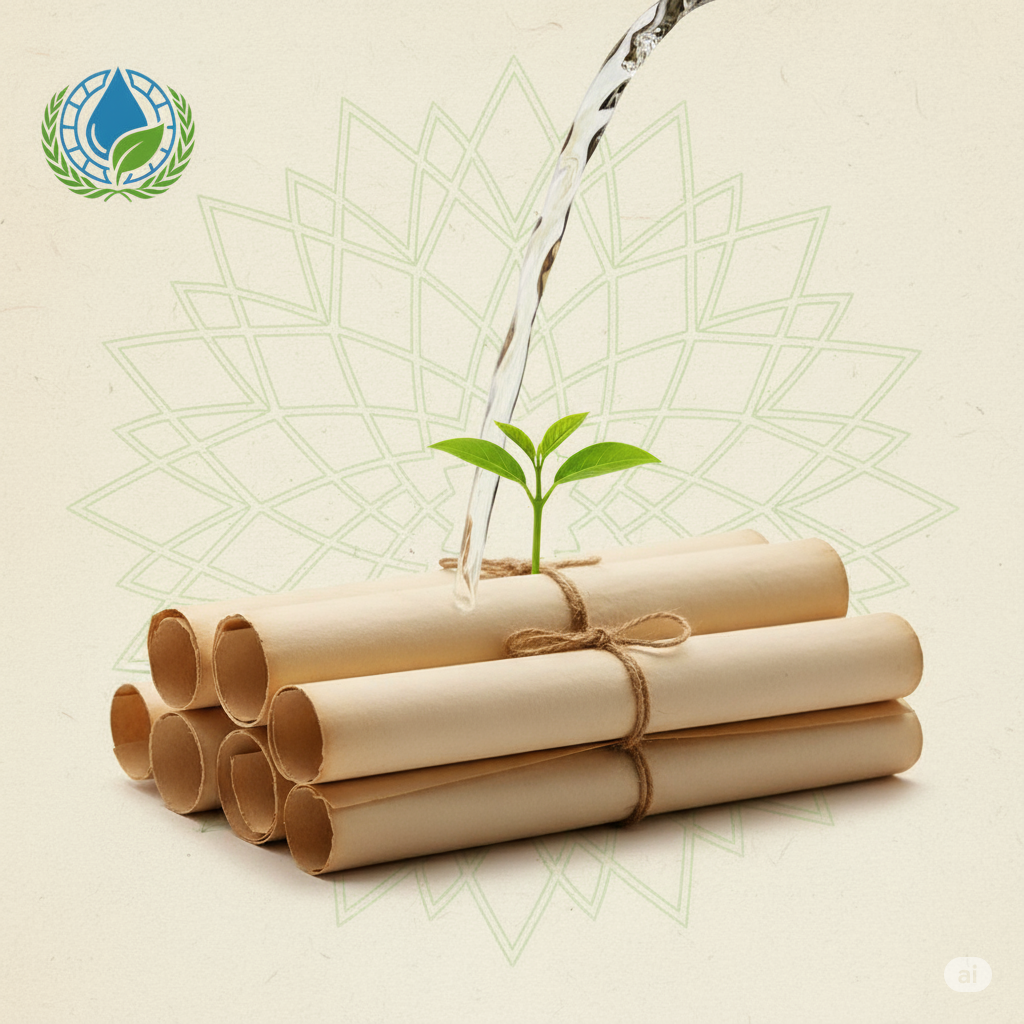Sustainable Development Goal 6 and the Prophetic Guidance on Water: A Hadīth-Based Framework
Abstract
 Abstract Views: 0
Abstract Views: 0
Water scarcity, pollution, and inefficient use remain critical barriers to achieving Sustainable Development Goal 6 (SDG 6: Clean Water and Sanitation)/ The attainment of Sustainable Development Goal (Clean water and Sanitation), SDG#6, is critically undermined due to pressing issues, like water scarcity, pollution, and inefficient management of water resources. While Islamic civilisation has developed and emphasised frameworks governing water access, hygiene, and conservation, these resources are integrated seldomly into modern contemporary sustainability discourse. The current study fills this gap by systematically examining the Prophetic tradition (ḥadīth) and aligning it with SDG#6 targeting clean water and sanitation needs and its governance for water management. A qualitative textual approach was deployed by extracting 27 authenticated narrations from five canonical Sunni collections, which were coded into themes of equity and access, conservation and efficiency, pollution prevention, sanitation and hygiene, and ecosystem care. These thematic variations were then mapped to all six substantive SDG#6, along with its implementation targets (6.a–6.b). Indicatively, the findings revealed a close relevance between Prophetic teachings and the SDG#6 framework: guidance against monopolising surplus water aligns with equitable access; prohibitions on wastefulness support efficiency; injunctions against polluting stagnant water parallel source-protection standards; and compassion toward animals broadens the scope of ecosystem care. The contribution of this work lies in providing a faith-sensitive ethical framework for water governance. By embedding SDG#6 within Prophetic ethics, the study enhances legitimacy, mobilises religious institutions, and offers practical entry points for culturally resonant policy instruments. By situating Islamic traditions within the discourse on sustainability, the current research will be beneficial in demonstrating valuable resources for advancing global sustainability goals (SDG#6), particularly in Muslim-majority contexts.
Downloads
References
A. Rehman, “The Qurʾānic Perspective on Natural Resource Management and Its Implications for Sustainable Development,” Al-Qurʾān and Water Science 2, no. 1 (2025): 1–10.
Almunawar, Mohammad Nabil, Anas Miftah Fauzi, Zainab Syifa Almunawar, and Masairol Masri. “Modelling Business Ecosystem of Halal Industry–Case Halal Food Industry in Indonesia.” Journal of Islamic Marketing (2025), https://doi.org/10.1108/JIMA-06-2024-0221.
Alsyouf, Leen, Imad Alsyouf, and Khaled Obaideen. “Advancing Water Security in Arid Regions: A Technological and Bibliometric Study on Integrating Hydro Panels in Buildings for Sustainable Development Goals.” Energy Nexus 15 (2024): 100312. https://doi.org/https://doi.org/10.1016/j.nexus.2024.100312.
Amiruddin, Muhammad Majdy, Islamul Haq, Haerul Anwar, and Asmaddy Haris. “Reforming Fiqh Al-Bi’ah (Ecological Jurisprudence) Based on Islam Hadhari: An Integration Conservation Framework of Muamalah and Culture.” International Journal of Law and Society (IJLS) 3, no. 3 (2024): 187–205, https://doi.org/10.59683/ijls.v3i3.99.
Asrori, Mohammad, Muhammad Muhammad, Mohamad Zubad Nurul Yaqin, Wafda Firyal, and Finadatul Wahidah. “Water Conservation in the Qur’ānic Perspective: A Thematic Analysis of Ethical Water Usage in Purification Rituals.” Studia Ecologiae et Bioethicae 23 (2025). https://doi.org/10.21697/seb.5854
Blankinship, Lisa A, Sarah Gillaspie, and Basil H Aboul‐Enein. “Highlighting the Importance of Biodiversity Conservation through the Holy Qur'ān.” Conservation Biology 39, no. 1 (2025): e14309.
Blankinship, Lisa A., Sarah Gillaspie, Khaled Obaideen, and Basil H Aboul-Enein. "‘… and We Have Made from Water Every Living Thing’: Water Conservation and the Holy Qur’an.” Environmental Conservation (2024): 1-6.
Lautze, Jonathan, Sanjiv De Silva, Mark Giordano, and Luke Sanford. “Putting the Cart before the Horse: Water Governance and Iwrm.” Natural Resources Forum 35 (1): 1–8, http://dx.doi.org/10.1111/j.1477-8947.2010.01339.x
Obaideen, Khaled., Nabila Shehata, Enas Taha Sayed, Mohammad Ali Abdelkareem, Mohamed S Mahmoud, and AG Olabi. “The Role of Wastewater Treatment in Achieving Sustainable Development Goals (Sdgs) and Sustainability Guideline.” Energy Nexus 7 (2022): 100112, https://doi.org/10.1016/j.nexus.2022.100112
Sadat, Anwar., and Muhammad Yusuf. “Strengthening Eco Fiqh: An Intergration of Texts and Maslaha on Environmental Impact Analysis.” Al Daulah: Jurnal Hukum Dan Perundangan Islam 10, no. 1 (2020): 93-113.
Sadoff, Claudia W, Edoardo Borgomeo, and Stefan Uhlenbrook. “Rethinking Water for Sdg 6.” Nature Sustainability 3, no. 5 (2020): 346–47, https://doi.org/10.1038/s41893-020-0530-9

Copyright (c) 2025 Fatima Zohra Aouati, Khaled Obaideen

This work is licensed under a Creative Commons Attribution 4.0 International License.

This work is licensed under a Creative Commons Attribution 4.0 International License. Authors retain copyright and grant the journal right of first publication with the work simultaneously licensed under a Creative Commons Attribution (CC-BY) 4.0 License that allows others to share the work with an acknowledgement of the work’s authorship and initial publication in this journal.







